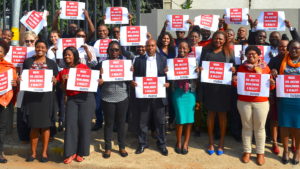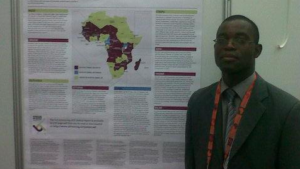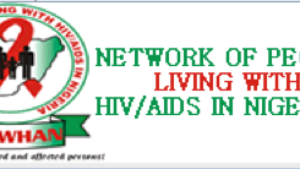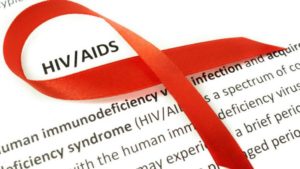Overview
Nigeria’s (federal) Sexual Offences Bill (enacted in 2015) includes sections on disease transmission. The Bill specifically names HIV as well as “other life threatening sexually transmitted disease(s)”, making it illegal for a person who knows they have HIV to intentionally, knowingly and wilfully do anything or permit anything to be done which they should reasonably know is likely to transmit HIV (s26(1)). The section, erroneously titled ‘Deliberate transmission of HIV or any other life threatening sexually transmitted disease’ does not require HIV transmission or for the person to have an intention to transmit HIV. The law carries a penalty of between 20 years and life imprisonment. The law specifically states that it applies whether or not the parties were married.
The Sexual Offences Bill also states that a person commits an act of rape if penetrative sex occurs under false pretences or by fraudulent means, which includes “intentionally failing to disclose HIV” (or other life-threatening STI) (s2 & 43). The law does not require transmission or provide a defence in relation to risk of transmission including use of a condom or having a low viral load, or consent. Notably, a person living with HIV is deemed to have committed a sexual offence, whether or not they were aware of their HIV-positive status. Further, the law states that if a person tests positive for HIV at the time of their trial, they will be presumed to have been HIV-positive at the time of the offence, unless able to prove otherwise (s26 (s7&8). The penalty ranges from 15 years to life imprisonment.
There is additionally an HIV-specific federal law, the HIV and AIDS (Anti-Discrimination) Act 2014, however this law does not contain any criminalising provisions, only provisions prohibiting discrimination against people living with HIV.
In addition to the federal law, individual states in Nigeria are able to enact their own criminal legislation. In February 2021, the Jigawa State House of Assembly adopted a new ‘Violence Against Persons Prohibition Law’ which introduced a range of severe penalties for sexual offences. The law, which was adopted unanimously by the House, stipulates a life sentence for rape, and the death penalty for cases of rape which result in HIV transmission.
There have been two known HIV criminalisation cases in Nigeria. The first occurred in Lagos, where media reported the arrest of a foreign national (2016) for allegedly “having sex with girls .. and infecting them with HIV”. It’s alleged the man knew he was HIV –positive but he did not disclose. It is unclear whether the term ‘girls’ refers to minors. No more is known about the case.
A 2017 case involves a sex worker who was pursued by police. Media reports stating she “may have infected 500 men” suggest the case has not been investigated or reported with care.
In November 2023, the President of the Christian Council of Nigeria proposed the federal government to introduce a new law which would criminalise stigmatisation of people living with HIV.
More information is available on the following states
Laws
Sexual Offences Bill 2015
Section 26. Deliberate transmission of HIV or any other life threatening sexually transmitted disease
(1) Any person who, having actual knowledge that he or she is infected with HIV or any other life threatening sexually transmitted disease intentionally, knowingly and wilfully does anything or permits the doing of anything which he or she knows or ought to reasonably know –
- will infect another person with HIV or any other life threatening sexually transmitted disease;
- is likely to lead to another person being infected with HIV or any other life threatening sexually transmitted disease;
- will infect another person with any other sexually transmitted disease,
shall be guilty of an offence, whether or not he or she is married to that other person, and shall be liable, upon conviction, to imprisonment for a term of not less than twenty years but which may be enhanced to imprisonment for life.
(7) Where a person is convicted of any offence under this Act and it is proved that at the time of the commission of the offence, the convicted person was infected with HIV or any other life threatening sexually transmitted disease whether or not he or she was aware of his or her infection, notwithstanding any other sentence in this Act, he or she shall be liable upon conviction to imprisonment for a term of not less than fifteen years but which may be enhanced to imprisonment for life.
(8) For the purposes of this section —
- the presence in a person’s body of HIV antibodies or antigens, detected through an appropriate test or series of tests, shall be prima facie proof that the person concerned is infected with HIV; and
- if it is proved that a person was infected with HIV after committing an offence referred to in this Act it shall be presumed, unless the contrary is shown that he or she was infected with HIV when the offence was committed.
Section 43. Intentional and unlawful acts
(3)(c) intentionally fails to disclose to the person in respect of whom an act which causes penetration is being committed, that he or she is infected by HIV or any other life-threatening sexual transmissible disease.
Further resources
This legal environment assessment was designed to identify important legal and human rights issues affecting people living with HIV and those at higher risk of HIV infection e.g. Men who have Sex with Men (MSM), Female Sex Workers (FSWs) and Injecting Drug Users (IDUs). It also took a brief look at the issues of vulnerable groups like young people and women living with disabilities. It sought to identify and review laws and policies that have implications for responding to HIV either by individuals or organisations in Nigeria and determine the extent to which the current legal and policy framework protects rights and/or acts as a barrier to access to HIV-related services.
HIV Justice Network's Positive Destinations
Visit the Nigeria page on Positive Destinations for information on regulations that restrict entry, stay, and residency based on HIV-positive status, as well as access to HIV treatment for non-nationals.









